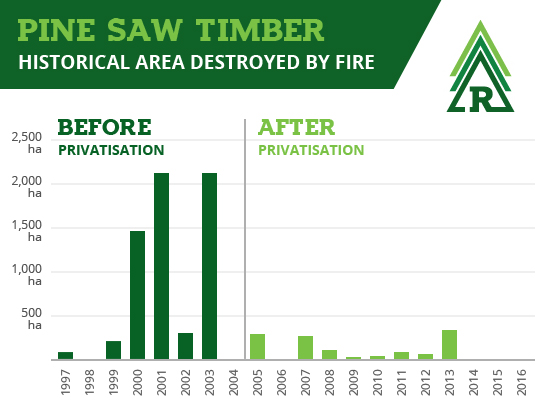Fire Fighting

AFC is a full member of the Greater Stutterheim Fire Protection Association (GSFPA) as well as the Eastern Cape Umbrella Fire Protection Association (ECUFPA) (Currently the AFC Silviculture Manager is the chairman for GSFPA and is the Vice Chairman for ECUFPA).
Greater Stutterheim Fire Protection Association
Since its establishment in 2009, the Greater Stutterheim Fire Protection Association has been actively assisting in the management and suppression of veld and forest fires. Though we do not necessarily do the physical fire fighting for the members, we do provide support services such as coordination of fire fighting, back-up assistance, weather reports and warnings, and where necessary, taking command of fires.
As part of our veld fire management strategy, we divide the GSFPA area into cells that collectively form Fire Management Units, or “FMU’s.” This structure allows us to identify fire risks, weather behaviour and other vital information with which we can then formulate Integrated Fire Management Plans (IFMP) for each FMU. Inside the structures of Cells and FMU’s we are able to advise on strategic firebreaks, burning regimes, fire break agreements or exemptions, grant burning permits as well as mediate on disputes between neighbours.
In accordance with the National Veld and Forest Fire Act of 1998, the GSFPA management structure is made up of an Executive Committee which is able to enforce the Act and the rules and regulations of the GSFPA through the Fire Protection Officer. Even non-members are required to comply with the Act and the regulations of the FPA in their area.
The GSFPA is situated in the Amathole District Municipality and a section of the Buffalo City Metropolitan. It covers most of the Amahlathi, Great Kei and Nkonkobe Local Municipalities. The GSFPA covers more than 980 000 hectares and is home to more than 330 000 people of which approximately 51% live in rural/village area, 43% in urban/developed areas and 6% live on farms.
Being a summer rainfall district, veldfires occur mostly during the winter season when the passage of cold fronts cause strong westerly, north-westerly and northerly winds and very low atmospheric humidity. Fires that flare up in these conditions often result in significant loss of grazing, timber, crops, livestock, and structures and often cause injury and even death.
The GSFPA area is primarily a rural economy, with commercial and industrial plantations, sawmills, stock-farms and eco-tourism being the most important contributors to the local community. Social assets such as the informal and formal settlements, farmsteads and resorts remain exposed to high risk of loss along with economic assets such as the commercial plantations and environmental assets like water catchments, vulnerable or protected species and wetlands.
The most common causes of wildfires in the area are escaped burns, negligent recreation fires (braais etc.), fires that spread into the area, various human influences such as arson and honey-hunting as well as faults in the Eskom power lines. The GSFPA aims to contribute to community development by eliminating loss of life and human injury in veldfires by progressively reducing impacts on property and environmental values, while promoting the useful role of veldfires.
AFC entered into a medium term (3 - 5 years) contract with Working on Fire for the supply of aerial resources for the dryer winter months (mid May to mid November). These resources consist of an Air tractor 802 water bomber with a 3 000 litre capacity as well as a Spotter plane (small fixed wing) based close to Stutterheim at the Stutterheim Airstrip. With these resources WOF also supply aerial resources to the ECUFPA on a yearly basis to assist with veld and forest fires through the Eastern Cape Province (also based at the Stutterheim Airstrip). This is usually a Huye Helicopter with a 1 200 litre Bambi suspended bucket and a Spotter plane.










